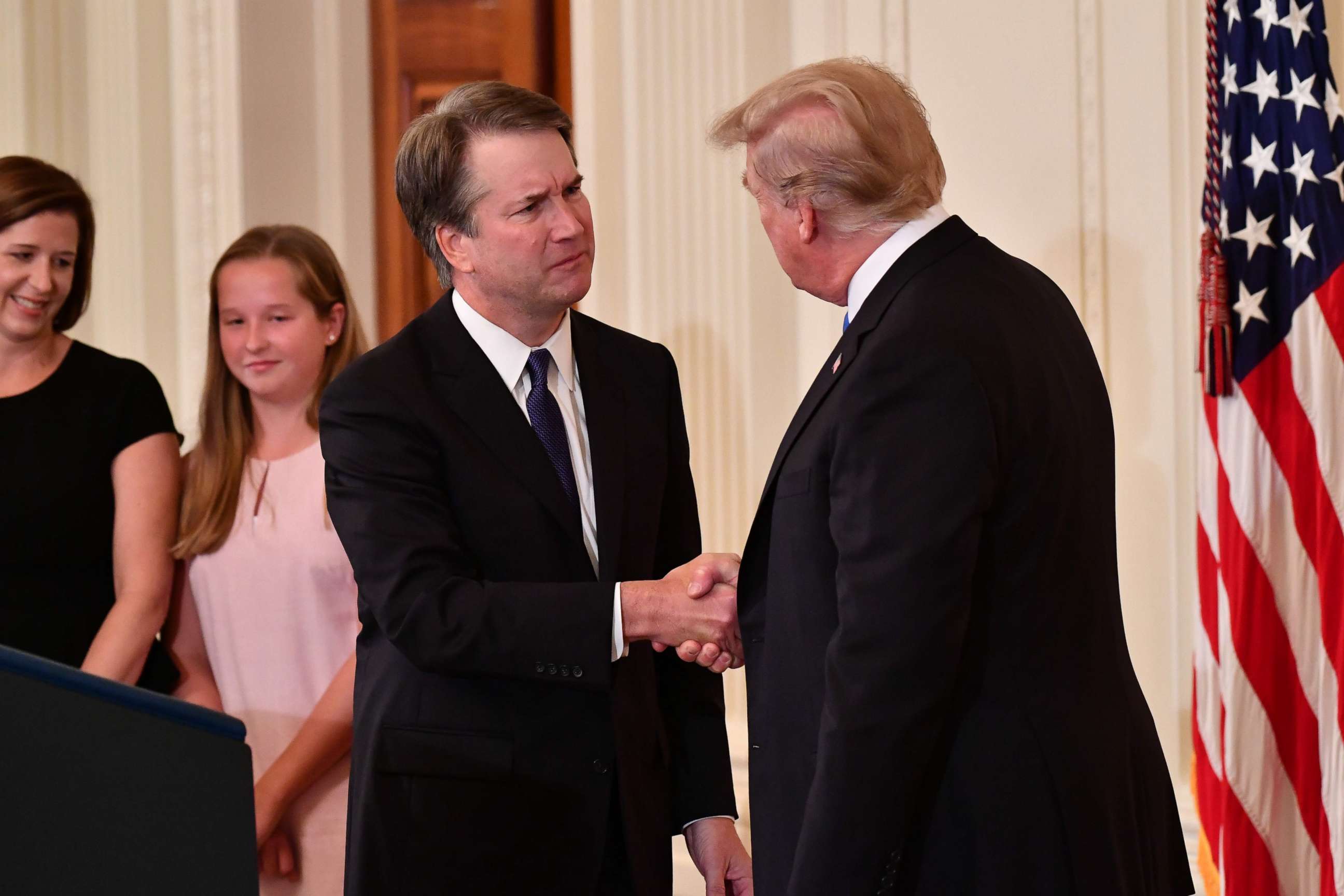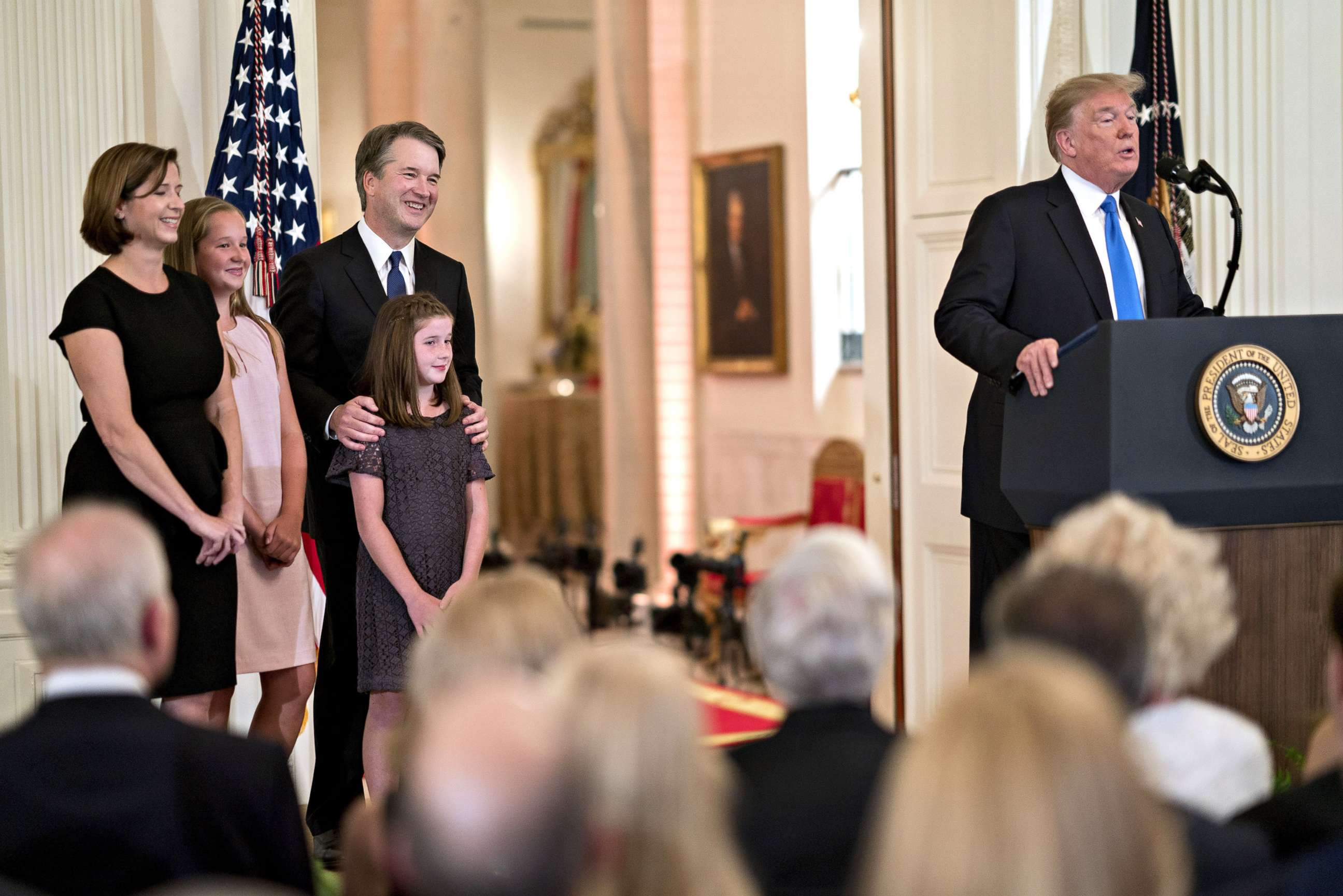Democrats warn Trump's SCOTUS pick could impact Mueller probe
Schumer said he thinks Trump is "worried" Mueller will try to subpoena him.
On the heels of President Donald Trump's nomination to the Supreme Court, Democratic lawmakers on Capitol Hill are sounding the alarm on Brett Kavanaugh's past stances on executive authority: favoring relatively unchecked presidential power and freedom for the president from "distractions" such as lawsuits or investigations.
If he were to be confirmed, some critics worry that judicial philosophy could enable Trump to avoid having to testify in special counsel Robert Mueller's probe into Russian interference in the 2016 presidential election.
Although Kavanaugh once helped write special counsel Kenneth Starr’s report which outlined broad grounds on which to impeach President Clinton for his role in the Monica Lewinsky scandal, Kavanaugh’s views have since evolved, which critics argue could have significant implications for President Trump.
“The law as it existed was itself the problem, particularly the extent to which it allowed civil suits against presidents to proceed while the President is in office,” Kavanaugh wrote in a 2009 Minnesota Law Review article, reflecting back on the Clinton investigation. It was a civil lawsuit that initially sparked that investigation.
Senate Minority Leader Chuck Schumer said he thinks Trump is "worried" Mueller will try to subpoena him and take other actions to advance the Russia probe.

"Judge Kavanaugh's background as a partisan political operative seems exactly like the kind of man President Trump would want on the Supreme Court if legal issues from the Mueller probe arise: deferential to a fault to executive authority, and with a long track record of partisan politics," Schumer said Tuesday.
In the law review, Kavanaugh wrote, "Having seen first-hand how complex and difficult that job is, I believe it is vital that the President be able to focus on his never-ending tasks with as few distractions as possible." He added, "The country wants the President to be "one of us" who bears the same responsibilities of citizenship that all share. But I believe that the President should be excused from some of the burdens of ordinary citizenship while serving in office."
Rep. Adam Schiff, ranking Democrat on the House Intelligence Committee, tweeted "Ever mindful of his self-interest, Trump has picked Brett Kavanaugh, who once wrote that he didn't believe a sitting President should be subject to criminal investigation or prosecution. Kavanaugh could be deciding vote on legal challenges to the Mueller investigation."

Legal experts tell ABC News that a subpoena battle before the Supreme Court potentially looms, but it would be a long process.
"[A] legal battle over a subpoena is the most likely. I suppose there could be a battle over whether Mueller's appointment was legal," said Josh Chafetz, a professor at Cornell Law School.
The president's top attorney, Rudy Giuliani, recently commented on the possibility of Trump getting subpoenaed by the special counsel telling ABC's George Stephanopoulos "we don't have to" comply.
Republicans, on the other hand, argue a nominee's stance carries no legal relevance and therefore shouldn't be questioned specifically about Mueller's probe.
"I don't think it's at all relevant," Sen. John Kennedy, R-Louisiana, told ABC News. "It's against the canons of judicial ethics as it should be, to ask a nominee for the federal bench, how he would decide a particular case.
Sen. Jeff Flake, R-Ariz., told ABC News "we have established precedent now, in the Judiciary committee not to ask about cases that might come before them."
A former high-level attorney in an independent counsel's office, familiar with the president’s legal strategy, told ABC News that there's nothing in Kavanaugh's previous writings that indicate he has pre-determined his stance on anything related to Mueller's probe that could eventually make it before the Supreme Court.
"On an issue like this, the Court is going to try very hard to be unanimous," the source predicted, adding: "If anything regarding Trump ever gets to the Supreme Court, there will be an intense effort to develop a consensus on a unanimous opinion."
ABC News' Mariam Khan contributed to this report.